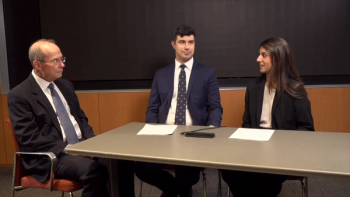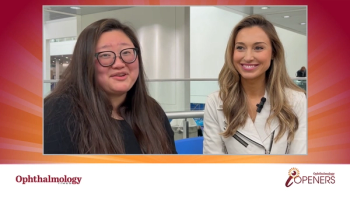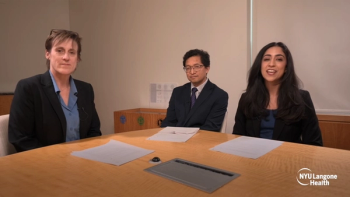
Long-Term Outcomes After Nonimplant MIGS Procedure
A panelist discusses how nonimplant MIGS, such as viscocanaloplasty and viscoelastic delivery devices, offer long-term IOP reduction and medication savings, emphasizing their benefits for early intervention and improved postoperative quality of life, while noting limitations for more advanced glaucoma conditions.
Summary of Roundtable Discussion on MIGS and Viscoelastic Devices:
The discussion focused on the effectiveness of nonimplant MIGS such as viscocanaloplasty and viscoelastic delivery devices. Studies show sustained pressure reduction and medication reduction over the long term, even without large randomized trials. Devices like iTrack have demonstrated positive outcomes, with patients reducing medication use and maintaining lower eye pressure.
These procedures offer better postoperative quality of life compared with more invasive surgeries, as they don't require suture lysis or frequent follow-ups. However, they are not suitable for conditions like neovascular glaucoma or advanced glaucoma, where filtering surgeries might be more appropriate.
The key takeaway is the importance of early intervention and minimizing long-term reliance on eye drops, encouraging the use of minimally invasive procedures.
Newsletter
Don’t miss out—get Ophthalmology Times updates on the latest clinical advancements and expert interviews, straight to your inbox.






























